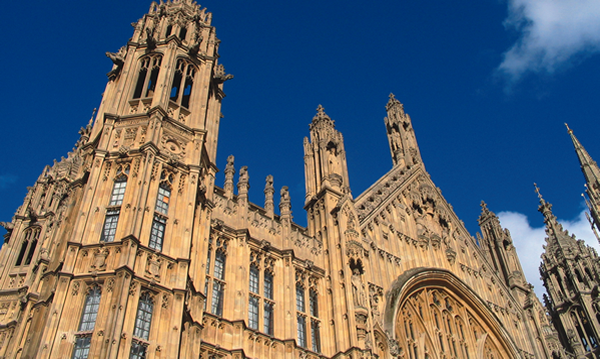Queen’s speech
Royal pomp and ceremony make the State Opening of Parliament almost a routine but there was a real sense of history about this year’s occasion. Never before has Elizabeth II unveiled the plans of a coalition government and, on a lower note, an unprecedented leak gave the public a preview of most of David Cameron’s plans.
From a local perspective, the speech can be broken down into three parts: direct mentions of the province, objectives for the UK as a whole and also the non relevant plans, where Parliament has no say in Northern Ireland.
The speech itself sets out the Government’s broad principles of “freedom, fairness and responsibility” and priorities, and is accompanied by a written list of specific Bills.
Direct
The Government will “support the political institutions and stable devolved government in Northern Ireland.” This is a re-iteration of the coalition’s pledge to support the existing negotiated agreements i.e. Good Friday, St Andrews and Hillsborough, and the devolution of policing and justice.
Unlike the Scottish Parliament and Welsh Assembly, there are no plans to grant the Assembly new powers but there is a promise to “work constructively and cooperatively” with the devolved institutions.
UK-wide
“The first priority is to reduce the deficit and restore economic growth.” This includes accelerated cuts and the independent Office for Budget Responsibility to improve confidence in how the public purse is managed.
Changes to national insurance, through the scrapping of Labour’s jobs tax, will “safeguard jobs and support the economy”. Financial services regulation will be reformed “to learn from the financial crisis”.
Parity means that the review of the state pension age and sanctions for benefit claimants who refuse available jobs will eventually apply in Northern Ireland.
The Government pledges investment in new high-speed broadband connections; policy is reserved to Westminster but it is unclear whether this funding will apply in the province.
Modernising the Royal Mail “in partnership with employees” is put forward with the company due to benefit from “private sector capital and disciplines”; this was immediately interpreted by trade unions as a plan for privatisation. The cap on non-EU economic migrants and abolition of identity cards are restated, along with the Government’s well-trailed constitutional reforms.
Parliament “and the British people” will have their say on any future power transfer to the EU.
Bills: Armed Forces; Equitable Life Payments Scheme; European Union; Financial Reform; Freedom (Great Repeal); Identity Documents; National Insurance Contributions; Office of Budget Responsibility; Parliamentary Reform; Pensions and Savings; Postal Services; Terrorist Asset Freezing; Welfare Reform.
Not applicable
It is important to disregard anything that is devolved as Parliament has no say in those subjects in Northern Ireland. The vast majority of announced social policy applies only to England.
This includes allowing new providers to run state schools, giving teachers greater freedom over the curriculum, a commission on social care and more powers to councils over housing and planning decisions.
Improving energy efficiency and removing the barriers to flexible working applies to England, Scotland and Wales but those fields are devolved in Northern Ireland. Economic regulation of Great Britain’s airports will also be reformed “to benefit passengers”.
Bills: Academies; Airport Economic Regulation; Decentralism and Localism; Energy and Green Economy; Health; Local Government; Police Reform and Social Responsibility; Public Bodies; Scotland.
A long parliamentary session will now follow with the next speech due in late 2011. Among the foreign footnotes are “effective global global collaboration to sustain economic recovery and to combat climate change”, a continued commitment to Afghanistan and an “enhanced partnership” with India.






